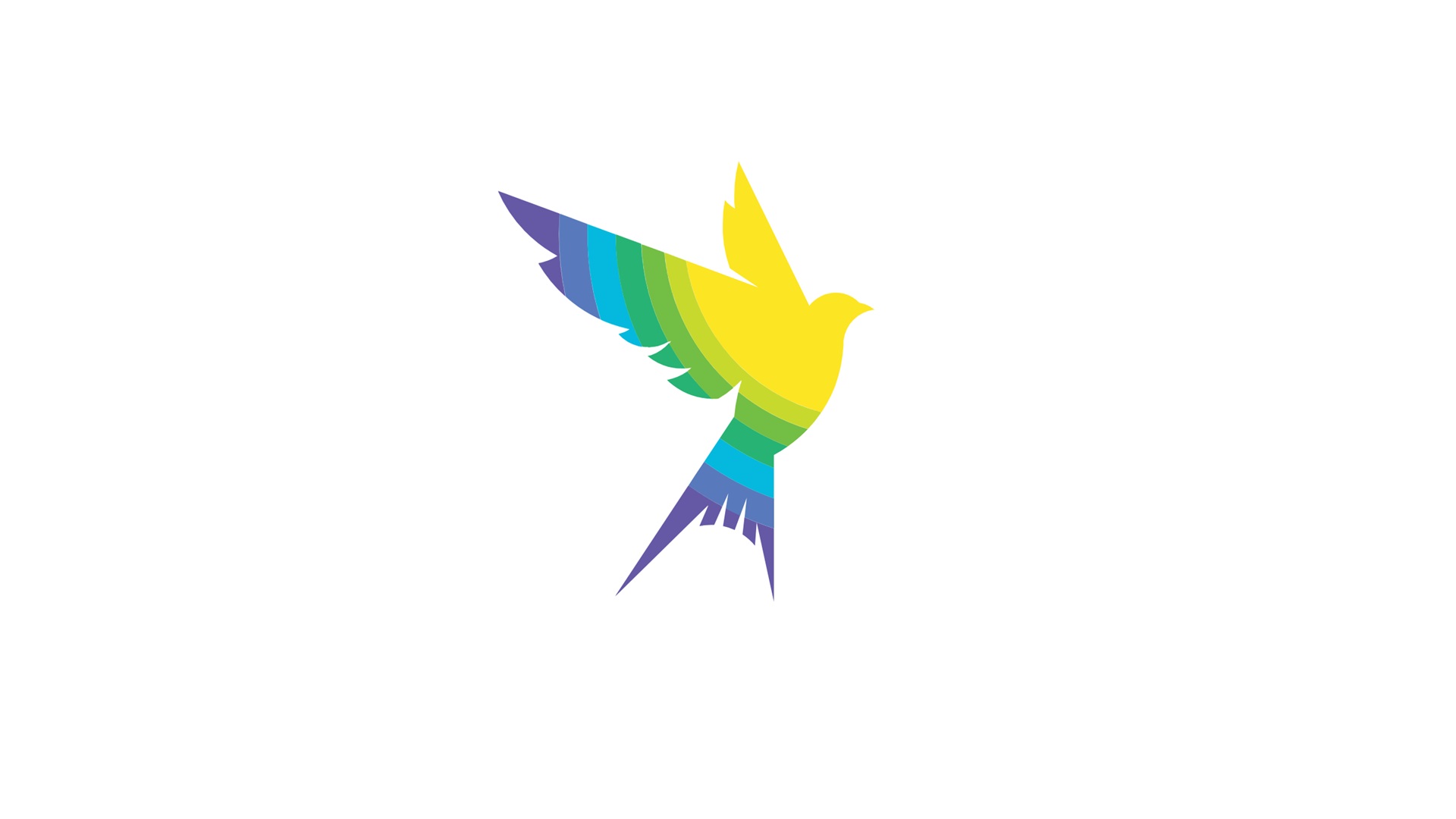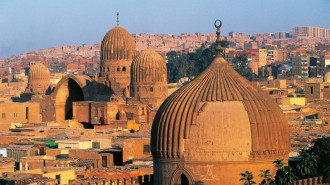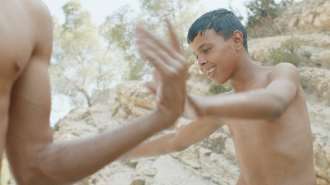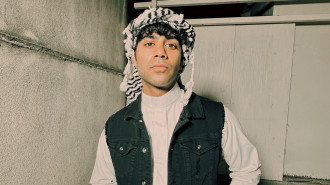
Qatar's Tasweer Photo Festival freeze frames talent and regional transition

The second edition of Tasweer Photo Festival Qatar is underway, bringing together new and established creators from Qatar and the wider WANA region in a massive showcase of local and regional skill and talent.
Initiated in 2021 by Qatar Museums and its chairperson, Her Excellency Sheikha Al Mayassa bint Hamad bin Khalifa Al Thani, the festival was conceived as a biennale event that would provide a platform for photography communities and businesses, serving to enrich Qatar as a creative incubator.
“[Tasweer is] really thinking about how to develop the creative industries here [in a] post-oil economy and – within that – thinking about what photography is, as both an industry and a modality that literally everybody uses,” Artistic Director Charlotte Cotton told The New Arab.
"[Photography] It's a tool; a vehicle; a form of journalism. Its fashion and image and celebrity, [but] it's also an independent art form"
“As somebody who's worked in photography for over 30 years, its beauty is it's all of these [different] things,” she said. “It's a tool; a vehicle; a form of journalism. Its fashion and image and celebrity, [but] it's also an independent art form, and I want Tasweer to be all of those things.”
The festival’s extensive programme incorporates many different exhibitions, talks, awards and activations, all hosted by various institutions around the city of Qatar.
On display as Mathaf: Arab Museum of Modern Art, I Am The Traveler And Also The Road hosts new works by twelve recipients of Tasweer’s annual Sheikh Saoud Al Thani Awards programme. The exhibition examines how photography transcends social barriers, creating connections through shared experiences.
Qatari photographer Fatema Al-Doh documents vanishing cultures, remote tribes, and minority and indigenous people. Her latest project focuses on the Kalash people, one of the smallest ethnic minorities in Pakistan. By embedding herself with the people she observes, her work captures the lives of her subjects in a naturalistic, compassionate fashion.
“In 2020, I decided to go and visit this village, as they are a minority in Pakistan,” said Fatema. “My approach is immersive, where I go and live with them in order to be able to understand their culture. I documented one of their most important festivals, which is the Winter Festival.
“I had to participate in their rituals in order to be able to document them,” she continued. “I was lucky to be allowed because no foreigners were allowed in that festival. I [have] documented this festival for two years, in 2020 and 2021. On my third visit, I, unfortunately, had an accident there, but I'm recovering and I'm planning to continue to be able to make a bigger documentary about this minority.”
Mohammed Elshamy was just 17 years old when he won the Egyptian Press Award in 2011 while working as an apprentice photojournalist at the Egyptian newspaper Al-Masry Al-Youm. In his extensive Egyptians Exiled project, he delves into the conflict at the heart of the regime change in his home country, investigating the impact of violence in the wake of traumatic change and the creation of a new political diaspora.
“This summarises the past 10 years, after the military coup in Egypt in 2014,” said Mohammed. “A lot of Egyptians were forced to go into exile due to the mass arrests [and] forced disappearances; basically anyone who was opposed to the military regime.
“We have one of the characters [who] lost her son,” he explained. “Others lost family members, fathers or brothers, either killed or in jail. My hope – through this project – is to spotlight the struggles of the people who have to go through these circumstances.”
Initiated in 2017 by creators Khalid Albaih and Aparna Jayakumar, Doha Fashion Fridays is a unique collaborative project centred on Qatar’s migrant worker communities.
Exhibiting at M7, a creative startup hub dedicated to fashion, design and technology, their work shows immigrant workers photographed and interviewed on Fridays – their day off – to show their unique styles of dress and give voices to their stories.
“I'm a political cartoonist, so I do everything in a hurry,” said Khalid. “For me, it's about the information, but I also wanted to take really good pictures, which I don't know how to do. When I met Aparna, I told her about the project; she took it and it was amazing because it was exactly the combination that I needed. This is about fashion [and] showing individuality, but it's also about telling the human story behind each one of them.”
Aparna explains how the priority was "to be as spontaneous as possible and to be very quick... but to also do it with some degree of control without scaring my subjects off. It was a challenge to be able to do all of those things in a few seconds. It's not like a clean typological portrait, but I think each one is unique in its own way.”
Also showing at M7, A Chance To Breathe presents the work of Azimul Hasson, Dil Kayas and Omal Khair, three Rohingya refugees who have documented their own experiences inside Cox’s Bazar in Bangladesh, the largest refugee camp in the world. Supported by Doha Debates and Fortify Rights, the three artists will continue to capture new images as the show’s run continues, which will be added to their presentation.
“The Rohingya genocide is ongoing,” explained Fortify Rights CEO Matthew Smith. “This is still happening. The Myanmar military has raised hundreds of villages. They've massacred people. Those violations are still happening, but that does not define the Rohingya people.
"In a lot of spaces around the world, the Rohingya are only ever talked about in the context of death and destruction. Through the lenses of three genocide survivors, who are brilliant photographers, what we can see [here] is their lives in the camps. We can see hope [and] resilience. There's a lot more happening, and – for us – it's a really beautiful component of this project,” he added.
“When I first walked into this space, it just brought tears to my eyes, because of what members of our team, our colleagues and – certainly – the photographers have turned in. To see this beautiful exhibition, celebrating life is really, really meaningful; we're very happy to be here.”
Robert McKelvey is a British freelance journalist and culture writer based in Lebanon.
Follow him on Twitter: @RCMcKelvey







 Follow the Middle East's top stories in English at The New Arab on Google News
Follow the Middle East's top stories in English at The New Arab on Google News


